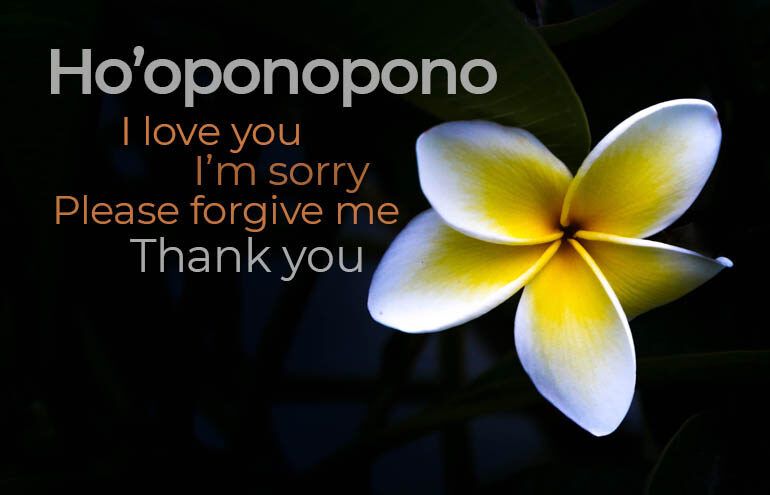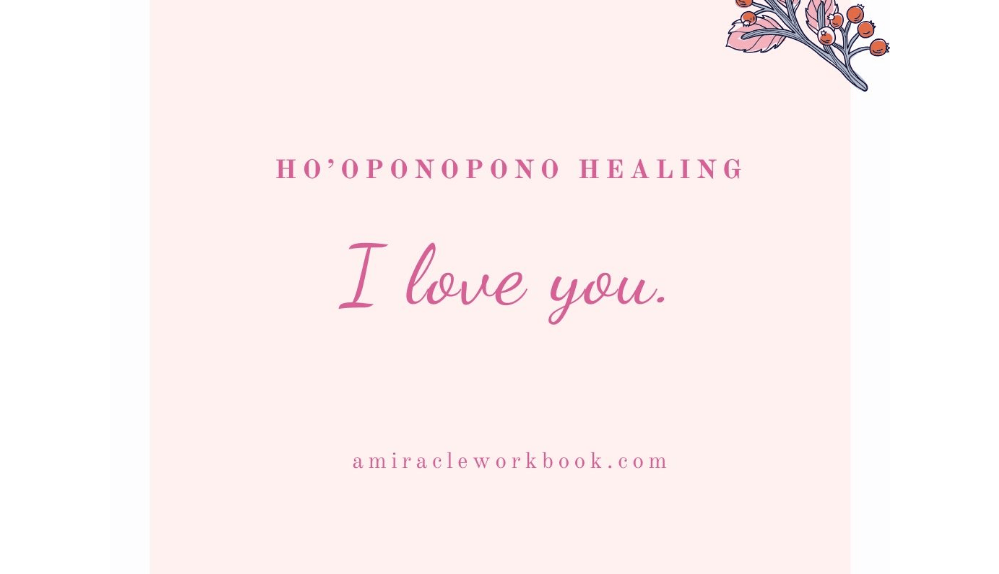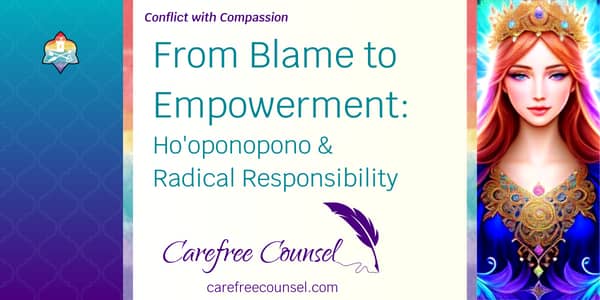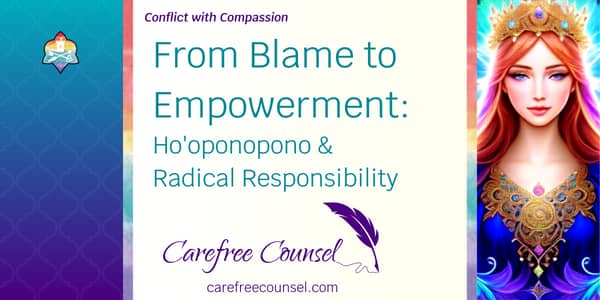In the practice of Ho’oponopono, personal accountability takes center stage as a powerful tool for personal growth and healing. By diving into the depths of one’s own responsibility, Ho’oponopono teaches individuals to confront their actions, thoughts, and emotions, ultimately leading to forgiveness, reconciliation, and self-improvement. This ancient Hawaiian practice emphasizes the importance of understanding and accepting that each individual holds the key to their own actions and reactions, highlighting the transformative potential that personal accountability holds within the realm of Ho’oponopono.
The Concept of Personal Accountability
Defining Personal Accountability
Personal accountability refers to the willingness and ability to take responsibility for one’s actions, choices, and outcomes. It involves acknowledging the consequences of our decisions and behaviors and accepting that we have control over our lives. Personal accountability is a fundamental concept in personal development and involves a sense of ownership and integrity.
Understanding the Importance of Personal Accountability
Personal accountability plays a crucial role in shaping our lives and can have a profound impact on our personal growth and well-being. When we hold ourselves accountable for our actions, we take control of our lives and actively work towards achieving our goals. It fosters a sense of empowerment and self-reliance, allowing us to make positive changes and overcome obstacles. Personal accountability also strengthens our relationships, as it builds trust and reliability. By embracing personal accountability, we become more aware of our choices and their consequences, leading to personal growth and transformation.
Introduction to Ho’oponopono
Overview of Ho’oponopono
Ho’oponopono is an ancient Hawaiian practice that focuses on resolving conflicts and restoring harmony within oneself and relationships. The word “Ho’oponopono” translates to “make right” or “correct the error.” It is a spiritual and holistic approach that emphasizes personal responsibility, forgiveness, and healing.
Origins and Cultural Significance
Ho’oponopono has its roots in Hawaiian culture and has been practiced for generations. It was traditionally used as a reconciliation and conflict resolution method within families, communities, and even within oneself. The practice was facilitated by a respected elder or practitioner, known as a “kahu,” who guided the process of healing and forgiveness. Today, Ho’oponopono has gained global recognition and is used as a spiritual and self-help tool for personal growth and transformation.

Ho’oponopono Principles
Principle of Responsibility
The principle of responsibility in Ho’oponopono emphasizes the importance of taking personal accountability for one’s thoughts, actions, and emotions. It encourages individuals to recognize that they have the power to create their own reality and are responsible for their own well-being. This principle highlights the need to let go of blame, victimhood, and externalizing one’s problems, and instead, focus on self-reflection and personal growth.
Principle of Forgiveness
Forgiveness is a central aspect of Ho’oponopono. It involves letting go of past grievances, releasing negative emotions, and finding inner peace. This principle acknowledges that holding onto anger, resentment, and grudges only serves to harm oneself. By practicing forgiveness, individuals can experience emotional healing and liberation from the past.
Principle of Healing
The principle of healing in Ho’oponopono focuses on restoring balance, harmony, and well-being. It encourages individuals to take responsibility for their own healing journeys and to address any emotional, mental, or physical imbalances. This principle recognizes that true healing comes from within and requires self-reflection, self-care, and self-compassion.
Principle of Reconciliation
The principle of reconciliation in Ho’oponopono emphasizes the importance of restoring and nurturing relationships. It encourages individuals to approach conflicts and misunderstandings with openness, compassion, and a willingness to seek resolution. This principle fosters a sense of unity, understanding, and connection, both within oneself and with others.
Application of Personal Accountability in Ho’oponopono
Acceptance of Responsibility for One’s Actions
In Ho’oponopono, personal accountability begins with accepting responsibility for one’s thoughts, words, and actions. It involves acknowledging that we have the power to create our reality and understanding the impact of our choices. By taking ownership of our actions, we can actively work towards making amends, seeking forgiveness, and improving ourselves.
Acknowledgement of the Consequences
Ho’oponopono encourages individuals to recognize and accept the consequences of their decisions and behaviors. It emphasizes the importance of understanding how our actions may have impacted others and taking steps to rectify any harm caused. By acknowledging the consequences, we can learn from our mistakes and make conscious choices moving forward.
Identification of Personal Triggers and Patterns
Another aspect of personal accountability in Ho’oponopono involves identifying our personal triggers and patterns. It involves self-reflection and self-analysis to gain awareness of our thoughts, emotions, and behaviors. By recognizing our triggers, we can actively work on healing and transforming ourselves.
Accountability in Relationships
Personal accountability extends to our relationships in Ho’oponopono. It involves taking responsibility for our part in conflicts and misunderstandings, seeking forgiveness, and working towards reconciliation. By practicing accountability in relationships, we can foster trust, understanding, and deeper connections.
Healing and Letting Go
Ho’oponopono emphasizes the importance of healing and letting go of past traumas, negative emotions, and limiting beliefs. By taking accountability for our healing journeys, we can release emotional baggage, find inner peace, and create a more positive and fulfilling life.

Ho’oponopono Tools and Techniques
The Ho’oponopono Mantra: I’m Sorry, Please Forgive Me, Thank You, I Love You
The Ho’oponopono mantra, consisting of the phrases “I’m sorry, please forgive me, thank you, I love you,” is a powerful tool used in the practice. By repeating these words, individuals acknowledge their responsibility, seek forgiveness, express gratitude, and cultivate love and compassion.
Inner Reflection and Self-Analysis
Inner reflection and self-analysis are essential components of Ho’oponopono. Through practices such as meditation, self-inquiry, and contemplation, individuals gain insight into their thoughts, emotions, and behaviors. This self-awareness allows for personal growth, healing, and transformation.
Meditation and Visualization
Meditation and visualization play a significant role in Ho’oponopono. These practices help individuals focus their minds, cultivate inner peace, and envision positive outcomes. By incorporating meditation and visualization, individuals can enhance their ability to take accountability for their lives.
Journaling and Writing Letters
Writing is a powerful tool in Ho’oponopono. Journaling allows individuals to reflect on their experiences, gain clarity, and identify patterns or triggers. Writing letters, whether to oneself or to others, provides an opportunity for release, forgiveness, and healing.
Seeking Support from a Ho’oponopono Practitioner
For those seeking guidance and support in practicing Ho’oponopono, working with a trained Ho’oponopono practitioner can be beneficial. These practitioners offer insights, tools, and techniques to help individuals navigate their personal accountability journey and facilitate healing and transformation.
Benefits of Personal Accountability in Ho’oponopono
Promotes Self-Growth and Empowerment
Personal accountability in Ho’oponopono fosters self-growth and empowerment. By taking ownership of our actions and choices, we become active participants in our personal development journey. This sense of empowerment allows us to make positive changes and create the life we desire.
Enhances Personal and Interpersonal Relationships
Embracing personal accountability in Ho’oponopono strengthens our relationships. By taking responsibility for our actions, seeking forgiveness, and working towards reconciliation, we cultivate trust, understanding, and deeper connections with others.
Induces Inner Peace and Emotional Healing
Personal accountability in Ho’oponopono facilitates emotional healing and the experience of inner peace. By acknowledging our responsibility and actively working on self-forgiveness, we release emotional baggage and find resolution within ourselves.
Improves Communication and Conflict Resolution Skills
Ho’oponopono’s focus on personal accountability enhances communication and conflict resolution skills. By recognizing our part in conflicts, taking responsibility, and working towards resolution, we improve our ability to express ourselves and create harmonious relationships.
Facilitates Personal Transformation and Change
By embracing personal accountability in Ho’oponopono, individuals open themselves up to personal transformation and change. The practice encourages self-reflection, healing, and letting go of limiting beliefs or negative patterns, resulting in personal growth, empowerment, and a more fulfilling life.

Challenges and Obstacles in Embracing Personal Accountability
Resistance to Taking Responsibility
One of the challenges in embracing personal accountability is resistance to taking responsibility for one’s actions and choices. It can be challenging to face our mistakes and accept that we have control over our lives. However, by acknowledging and overcoming this resistance, we can experience personal growth and transformation.
Fear of Confronting the Self
Fear of confronting our true selves can hinder personal accountability in Ho’oponopono. Facing deep-rooted fears, insecurities, or wounds requires courage and vulnerability. However, by embracing self-reflection and self-analysis, we can heal and grow.
Pattern of Blaming Others
The habit of blaming others instead of taking accountability is a common obstacle to personal accountability. It can be easier to point fingers and externalize our problems. However, by shifting this pattern, we can regain control of our lives and actively work on self-improvement.
Lack of Awareness and Self-Reflection
Lack of awareness and self-reflection can impede personal accountability. Without understanding our triggers, patterns, and emotions, it becomes difficult to take responsibility for our actions. Cultivating self-awareness through practices like meditation and journaling can help overcome this challenge.
Integration of Personal Accountability and Ho’oponopono in Daily Life
Self-Care Practices and Self-Accountability
Integrating personal accountability and Ho’oponopono in daily life involves practicing self-care and self-accountability. Taking responsibility for our well-being, setting healthy boundaries, and prioritizing self-care enables personal growth and enhances our ability to take accountability for our lives.
Mindfulness and Conscious Living
Mindfulness and conscious living are vital aspects of integrating personal accountability and Ho’oponopono. By being present and aware of our thoughts, emotions, and choices, we can make conscious decisions and take ownership of our actions.
Cultivating Forgiveness and Compassion
An essential part of integrating personal accountability and Ho’oponopono is cultivating forgiveness and compassion, both towards ourselves and others. By practicing forgiveness, we release negativity and open ourselves up to healing and personal transformation.
Embracing Continuous Learning and Growth
Ho’oponopono encourages continuous learning and growth. Embracing personal accountability involves seeking opportunities for growth, learning from our mistakes, and striving for self-improvement.
Building Supportive Community and Connections
Integrating personal accountability and Ho’oponopono benefits from a supportive community and connections. Surrounding ourselves with like-minded individuals who embrace personal accountability can provide encouragement, guidance, and accountability in our journeys.

Criticism and Controversies surrounding Ho’oponopono
Cultural Appropriation and Misinterpretation
One criticism of Ho’oponopono is related to cultural appropriation and misinterpretation. As it has gained popularity globally, there have been concerns that its traditional and cultural significance may be diluted or misrepresented. It is crucial to approach Ho’oponopono with cultural sensitivity and respect.
Lack of Scientific Evidence
Another criticism of Ho’oponopono is the lack of scientific evidence supporting its effectiveness. While many individuals have reported positive experiences and transformations, the scientific community may require more empirical research to accept its efficacy fully.
Overemphasis on Individual Responsibility
Critics argue that Ho’oponopono may place an excessive burden of responsibility on individuals, potentially disregarding systemic issues or external factors that contribute to their challenges. It is important to strike a balance between individual accountability and recognizing external influences.
Conclusion
Ho’oponopono offers a powerful approach to personal accountability, emphasizing responsibility, forgiveness, healing, and reconciliation. By deeply understanding and integrating these principles into our lives, we can experience personal growth, enhance our relationships, find inner peace, improve our communication skills, and undergo personal transformation. Despite challenges and criticisms surrounding Ho’oponopono, its principles provide a valuable framework for embracing personal accountability and embarking on a journey of self-discovery and change. By taking action and applying the principles of Ho’oponopono, we can cultivate a greater sense of self-awareness, compassion, and empowerment, ultimately leading to personal transformation and a more fulfilling life.

